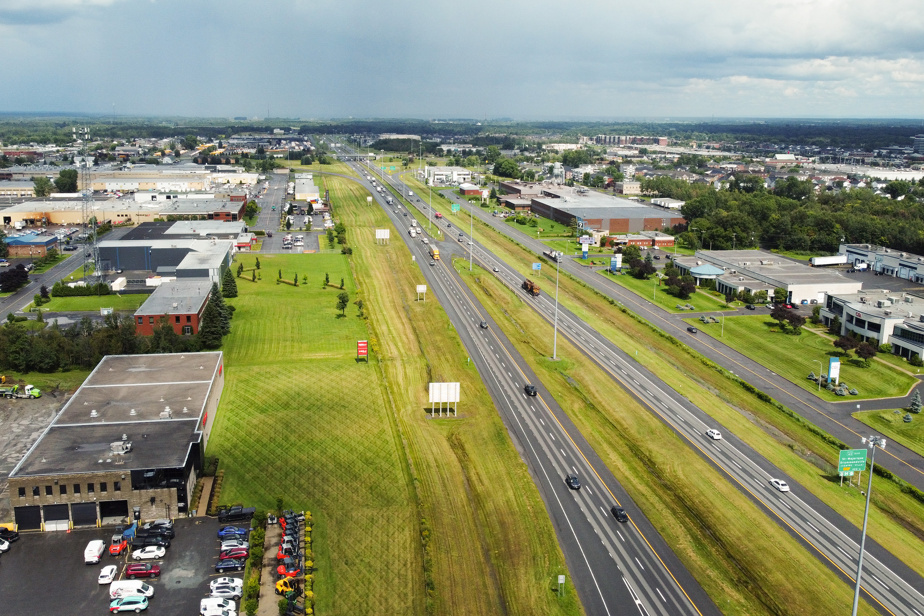The Quebec real estate investment fund (REIT) PRO, with a market capitalization of less than 300 million, delivers a current distribution yield of almost 10% due to the depressed share price.
Listed on the Toronto Stock Exchange, PRO REIT distributes $0.0375 per unit every month to its unitholders. At this distribution level, the current yield is 9.5% ($0.45 for a share priced at $4.74) due to the discount on the value of the share selling at 57% net present value ($8.31 per share).
REIT PRO (PRV.UN, $4.74) was founded in Montreal 10 years ago in 2013 by James Beckerleg (ex-Canmarc) and Gordon Lawlor. Starting from two buildings, the REIT has 126 properties in Canada worth $1 billion ten years later.
Owner-manager, Pro was originally a REIT diversified across different asset classes. Over the years, it has focused on the industrial category, among the most popular with investors due to the potential for vigorous organic growth. In 2023, 80% of the rental area will be concentrated in the industrial sector.
“Our buildings are mainly located in secondary markets like Lévis and Drummondville. We are looking to increase our presence in the Quebec region,” said its chief financial officer, Alison Schafer. La Presse met the CPA in November at FPI PRO’s head office on Mansfield Street in downtown Montreal. She is part of a management team that is 40% female, a rarity in commercial real estate.
PROREIT owns a critical mass of industrial properties in the port city of Halifax. Half of its assets are located in the Maritimes, in fact, and just over 9% in Quebec.
“We are targeting assets of 2 billion within three to five years to reach a market capitalization of 1 billion, a threshold that attracts the attention of institutional investors and which leads to the inclusion of the trust in a stock market index” , explains Schafer.
Another goal is to derive 90% of its revenue from industrial, compared to 72% currently, and to lower the fund’s debt ratio from 50% to 45%.
Doubling in size will be quite a challenge if mortgage rates remain high as predicted by Desjardins Group economists. “The market must be conducive to raising capital,” agrees the manager. Which has not been the case for two years. »
It took a lot of creativity for FPI PRO to generate growth recently. For example, in 2022, FPI PRO exchanged its interests in a portfolio of 21 properties with Crestpoint of Toronto for equivalent interests in a block of 21 other properties, while retaining management of the 42 properties.
This year, instead of making acquisitions, the fund simply sold five properties, retail properties and offices, to refocus on industrial.
Failing to increase acquisitions, FPI PRO benefits from rising rental income in the industrial sector when leases are renewed. Ms. Schafer estimates the gap between current rents and the market rent level at 43%, which has exploded over the past three years.
“Our leases that we are signing these days provide for an automatic annual indexation of 3% for a period of three to five years,” she explains. The occupancy rate is now 98.2%. Rental income reduced by operating and interest expenses is used to pay monthly distributions to fund unitholders.
On the other hand, the REIT will face an increase in its financing costs as its mortgage loans mature in the years to come. In the short term, however, the effect is mixed.
“For 2023 and 2024, we only have 10% of the value of our loans maturing,” indicates the FPI’s finance manager. The average interest rate is 3.75% and the average loan maturity is 5.4 years. At constant income, higher interest costs reduce the income distributable to unit holders.
The payout ratio is close to 95% after nine months in 2023, which is high and likely to cast doubt on the sustainability of the distributions. We do not expect an increase in distribution in the short term.
“The payout ratio increased in 2023 following a vacancy in a 102,000 square foot building in Saint-Laurent,” says Ms. Schafer. New tenants entered in October, which should allow the ratio to drop slightly. »
We must never lose sight of the fact that distributions are not guaranteed. In 2020, REIT PRO distributed $0.63 per year, which has since declined to $0.45 per unit during the pandemic.
